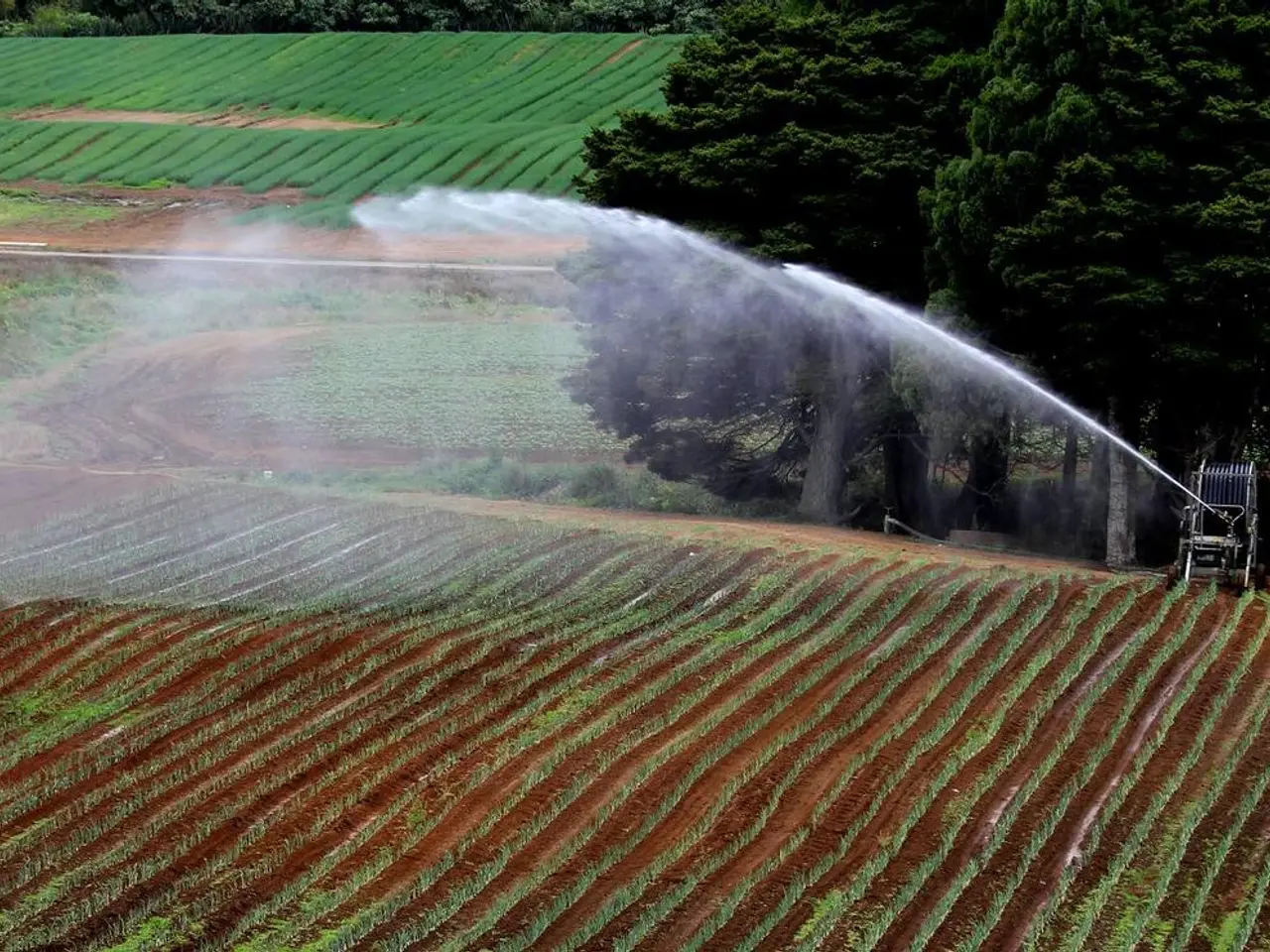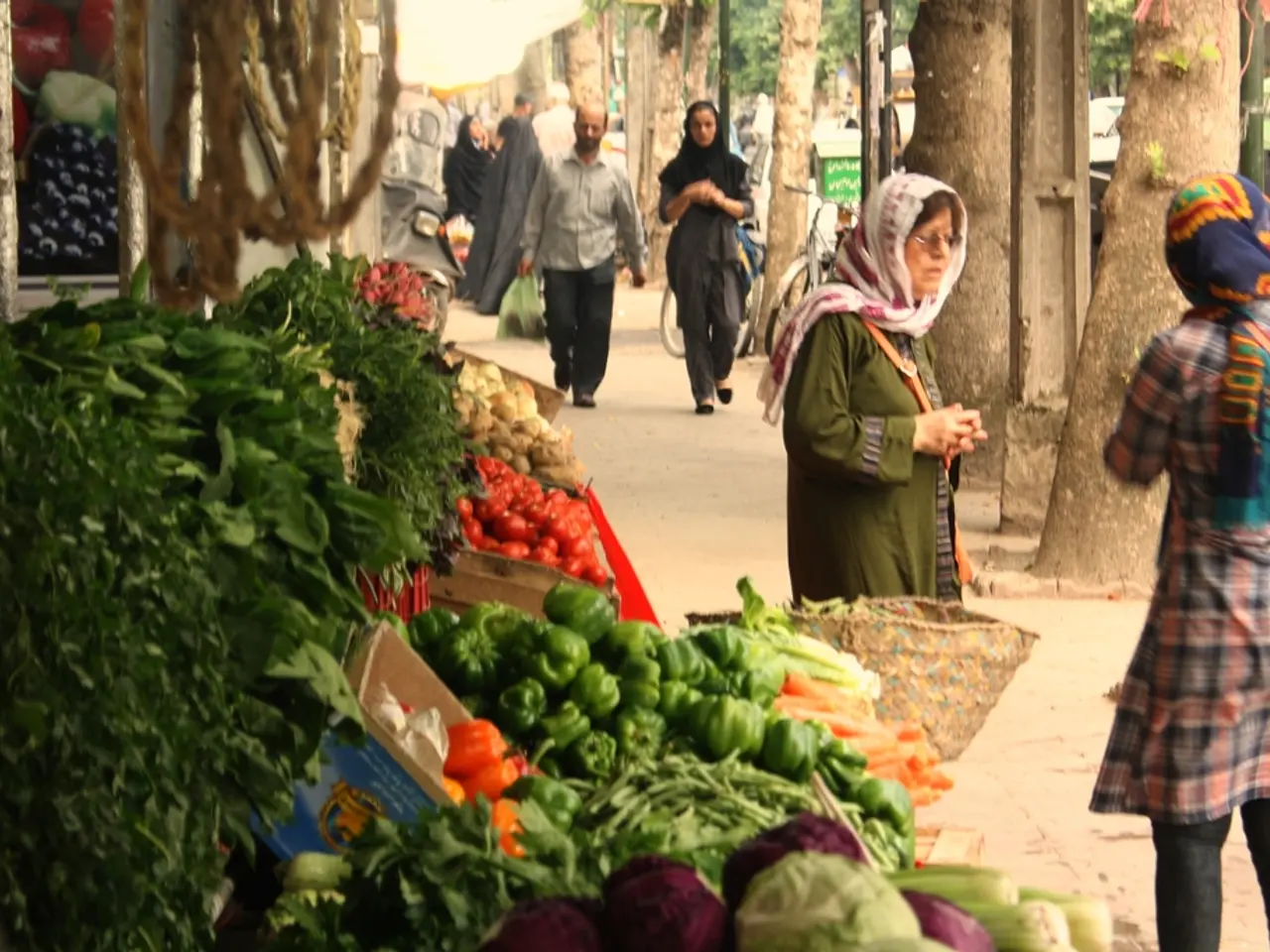Streamlining Farm Equipment Productivity Today
In the world of agriculture, a modern approach is transforming the way crops are grown and soil is managed. Precision Agriculture, a technology-driven farming method, is making farms smarter, more efficient, and more sustainable.
By adopting precision farming techniques, crop yields can be significantly boosted while also being kinder to the planet. This new approach utilizes tools like GPS, sensors, and data analysis to monitor and manage farming practices more effectively.
One of the key benefits of precision farming is the reduction in labor needs. Automated farming machinery, such as electric tractors, reduces labor costs by taking care of tasks like planting, harvesting, and irrigation. These machines not only improve crop precision, resulting in better crop health, but also provide consistent results, ensuring high-quality crops.
In the future, robots, drones, and data analytics will guide every decision on farms, making them more efficient and sustainable. Farm management apps organize data and track farm performance, contributing to a more sustainable future. Drones, for instance, are used in smart farming to monitor crops from above, helping spot problems like pests or diseases early. Ground sensor networks measure soil pH, moisture, temperature, and other microclimate parameters in real-time to complement aerial data and inform irrigation and nutrient management.
The use of technology in farming also enables data-driven decisions. GPS technology is used for planning planting and harvesting, saving time and fuel. Soil moisture sensors indicate when crops need water, enabling precise watering schedules. Variable Rate Technology (VRT) adjusts input amounts—seeds, water, fertilizers, pesticides—according to field variability, reducing waste and improving crop health.
Innovations in sustainable farming practices in the coming years will help reduce waste and increase yields. Solar-powered pumps reduce reliance on fossil fuels in farming, while Biofuel, which combines sustainable and renewable resources, significantly reduces greenhouse gas emissions. The future of sustainable farming practices involves smarter farms with machines working together seamlessly.
The benefits of precision farming are numerous. Not only does it increase efficiency, but it also results in cost savings, better crop health, and environmental protection. Precision farming plays a significant role in improving crop yields by collecting data, applying targeted treatments, and continuous monitoring. As technology continues to advance, the impact of precision farming on agriculture and the environment will only grow.
References:
- Precision Agriculture: A Review
- Precision Agriculture: Technologies and Applications
- Remote Sensing in Precision Agriculture
- Precision Agriculture: A Review
- Precision Agriculture: A Review
- The integration of science and technology in agriculture through Precision Agriculture not only enhances the quality of crops but also promotes a more environmentally friendly lifestyle by reducing waste and carbon emissions.
- As technology advances in the field of finance, investment in precision agriculture becomes a strategic decision for those seeking to combine financial growth with a commitment to the sustainable management of natural resources.
- In the realm of sports, athletes can adopt a precision agriculture-inspired approach to training by monitoring their performance data, adjusting workouts based on results, and making decisions driven by scientific analysis to optimize their health and achieve peak performance.




